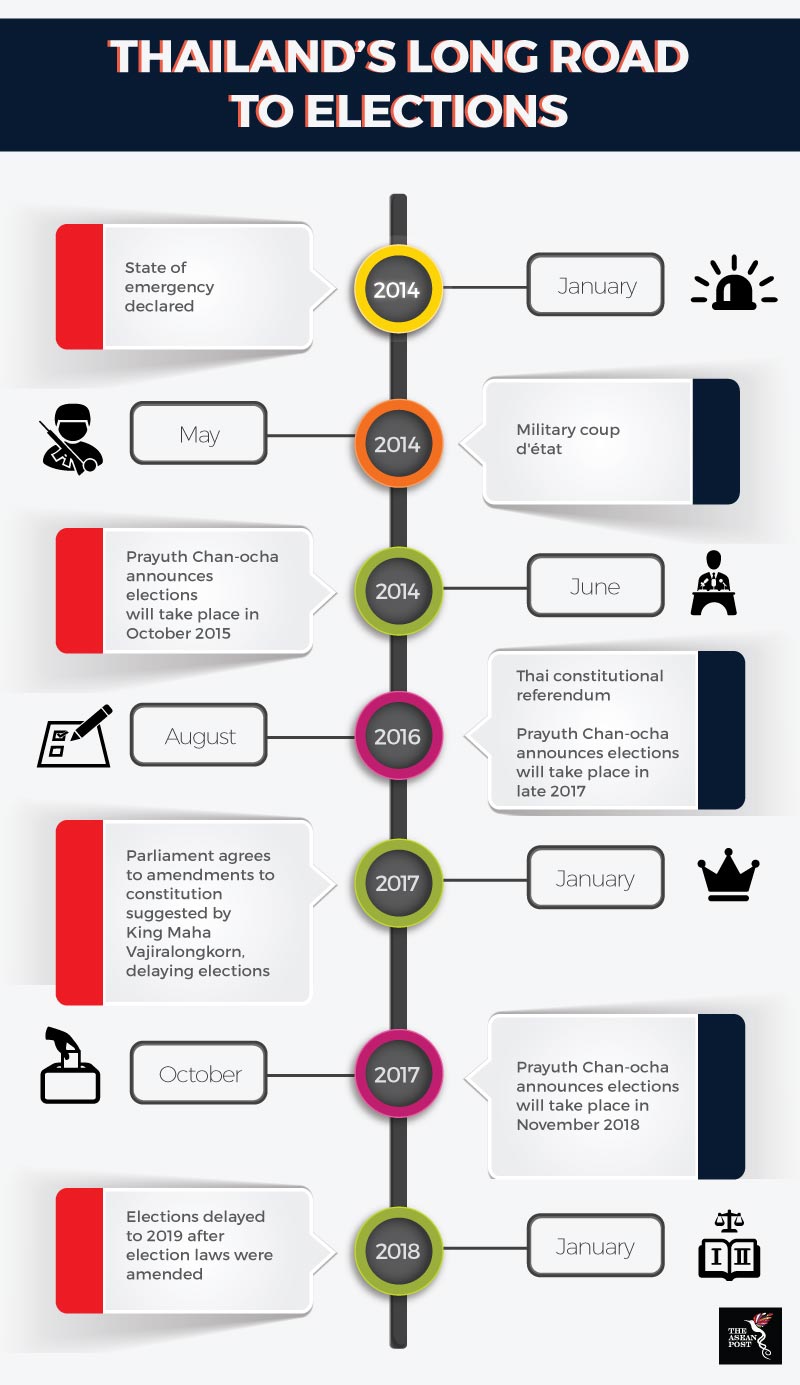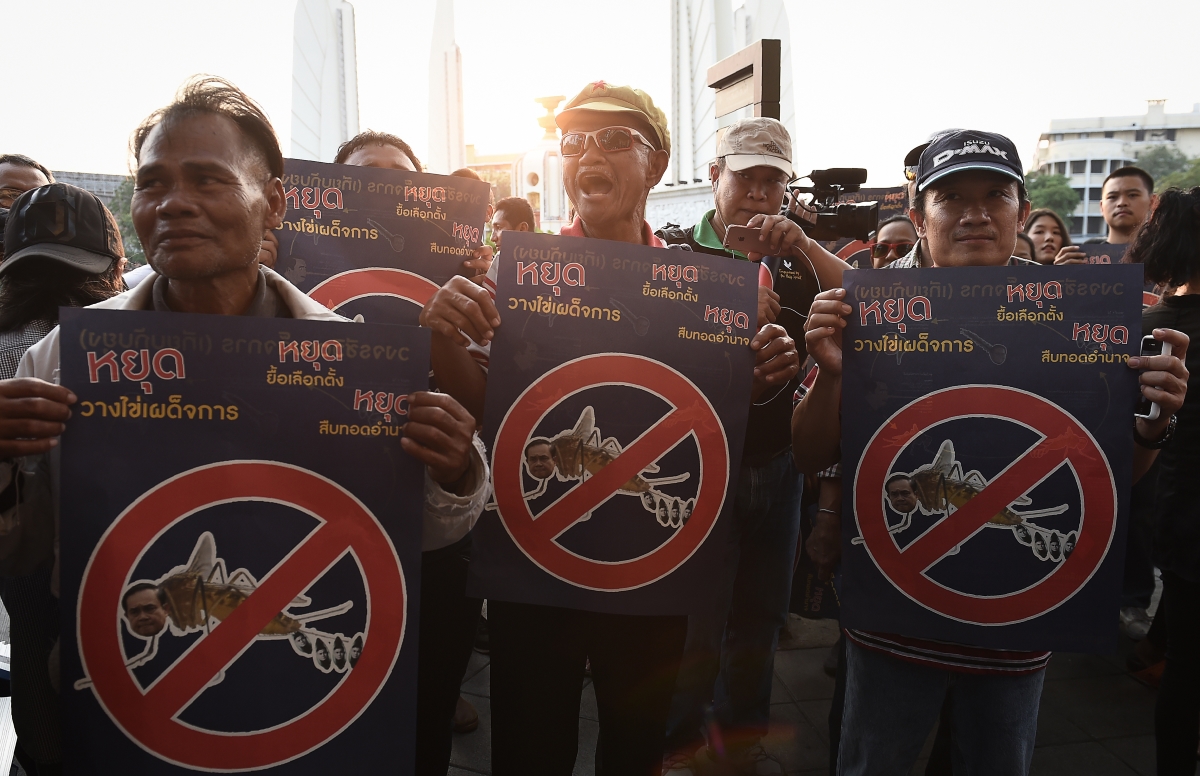Ever since the military junta gained power in 2014, it has promised on numerous occasions that democracy will return to Thailand and fresh elections will be held. Four years since the installation of a military government known as the National Council for Peace and Order (NCPO), elections have yet to be held and citizens there are losing patience.
Pro-democracy protests calling for the end of military rule and fresh elections have increased in frequency and in crowd size. Despite the military junta outlawing any political gathering of more than four people, this hasn’t stopped Thais from expressing their dissatisfaction with them. On the fourth anniversary of the coup last week, hundreds of protesters gathered to call for polls.
Long-promised elections
Leader of the military junta and Thailand’s current Prime Minister Prayut Chan-o-cha have long promised the return to democracy. After the military coup of 2014 that saw the removal of former Prime Minister Yingluck Shinawatra and other ministers from government, the military junta pledged to return to democracy in Thailand with Prayut Chan-O-Cha hinting that elections could happen as early as October 2015. That was later pushed back after the draft constitution was rejected by the National Reform Council. In December 2016 a revision to the draft constitution was ordered by His Majesty King Maha Vajiralongkorn which further stalled hopes of a general election to 2017.
The junta’s latest promise of holding elections before the end of the year looks set to be delayed till at least February 2019. The junta controlled National Legislative Assembly of Thailand voted in February to amend an election law that will most likely push back the elections. There are even talks that the elections could be further delayed after a junta-appointed legislature’s decision to send its senate bill for legal review.

Source: Various sources
Consolidating power
Many on the ground feel that election delays by the junta is a deliberate move to cling to power and use such powers to consolidate its position in the Thai political sphere.
Aware of its unpopularity amongst Thais, the junta is making moves to ensure a victory if ever elections are held. Local media reports show that Prayut Chan-o-cha has been touring the country and speaking to large crowds, effectively gaining a head start in election campaigning. The same can’t be said of the opposition. Under Thai election laws, election speeches will only be allowed at venues managed by the junta appointed Election Commission.
There’s also talk that the military junta is planning on dissolving the Pheu Thai Party – Thailand’s biggest opposition party. According to a new law chartered by the junta in 2017, any political party allowing interference by an outsider risks a jail term and will be deprived of electoral rights for five years. There is also a risk that the party could face dissolution if found guilty. With the party’s obvious links to Thaksin Shinawatra – who is currently overseas – the law was clearly drafted to target the opposition.
A new hope
Ever since the surprising outcome of the Malaysian elections which saw the Alliance of Hope (Pakatan Harapan) opposition coalition winning the general elections there, the mood for change has started to spread across the region. After the coalitions’s victory in Malaysia, Thaksin was quick to congratulate Dr. Mahathir, commenting that his (Mahathir’s) leadership will “reinvigorate ASEAN”.
Inspired by the history-making scenes in Malaysia, Thai citizens have now sought the help of 80-year-old former Prime Minister Chuan Leekpai to “do a Mahathir” and return to politics. Analysts have even said that Leekpai might have a good chance at winning considering his popularity in Thai political circles. Leekpai has been surprisingly quiet on this too.
Another political party has also emerged in the past year. The Anakhot Thai or Future Forward Party consists of just 26 people from different backgrounds ranging from LGBT activists, environmentalists, scholars and more. Perhaps this party can steer Thailand’s political discourse away from militaristic and dynastic politics into one that centres on the concerns of the Thai people.
With the mood of change in the air, many in Thailand are hoping that democracy will return to their land. However, as long as the military junta holds on to power, it is unlikely that democracy will arrive anytime soon.
